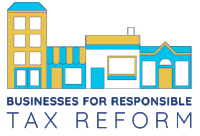Below is the letter sent late yesterday to U.S. Senate leaders and members of the U.S. House. The letter gives four recommendations for helping small businesses survive the coronavirus pandemic.
The letter is from a national coalition of small businesses, Businesses for Responsible Tax Reform, which is co-chaired by the president/CEO of the SC Small Business Chamber of Commerce, Frank Knapp.
The letter recommends that Congress send grant money to small businesses, instead of giving loan guarantees to banks—loans that will unlikely be used by small business owners worried that they might no be around in a few months. The federal grants would be used for normal operating expenses. The letter also recommends helping small businesses that already have business loans and calls for a stimulus checks to be sent to working families in order to increase consumer demand.
March 19, 2020
The Honorable Mitch McConnell
317 Russell Senate Office Building
Washington, DC 20510
The Honorable Marco Rubio
284 Russell Senate Office Building
Washington, DC 20510
The Honorable Ben Cardin
509 Hart Senate Office Building
Washington, DC 20510
CC: U.S. House of Representatives
Subject: Policy Recommendations to Help Small Businesses Survive COVID-19
Dear Leader McConnell, Chairman Rubio and Ranking Member Cardin,
As the economic impacts of COVID-19 expand, small businesses are struggling to survive — placing nearly half of the nation’s private sector jobs at risk. Recent Goldman Sachs’ research shows 96% of small business owners are already being hurt by the economic fallout of the coronavirus. Urgent action is required.
Businesses for Responsible Tax Reform, a national coalition of small business leaders advocating for economic policies that benefit small businesses, is recommending a set of policies to ameliorate small business losses and position our economy for recovery. We respectfully ask Congress to consider:
- Instead of only offering loans, immediately direct federal grants to small businesses with 50 or fewer employees to help them meet financial obligations the business would have met on their own if it wasn’t for loss of business due to COVID-19. Applications must be simple and streamlined.
- Deferring principal and interest payments on all federally-backed small business loans for at least six months. Encourage traditional lenders to do the same.
- Requiring lenders to refinance all federally-backed small business loans with lower interest, longer-term loans with no refinancing fees. Encourage traditional lenders to do the same.
- Issuing stimulus payments to individuals with household incomes of $125,000 or below and to families making $250,000 or below. These inclusive limits are in-line with the definitions of middle class in federal tax brackets, providing consistency and fairness.
These policies will provide much needed emergency relief for small businesses, helping business owners, their employees and their communities. Small businesses were key to economic recovery after the Great Recession, creating nearly two-thirds of post-recession private-sector jobs. If Congress takes these steps now to help small business owners—and keeps finding ways to help Main Street in the long run–it will give small businesses the chance to lead us out of this economic turmoil and continue to create quality jobs for years to come.
Sincerely,
Businesses for Responsible Tax Reform Co-Chairs
Frank Knapp, Jr.
Shaundell Newsome
Anne Zimmerman, CPA



